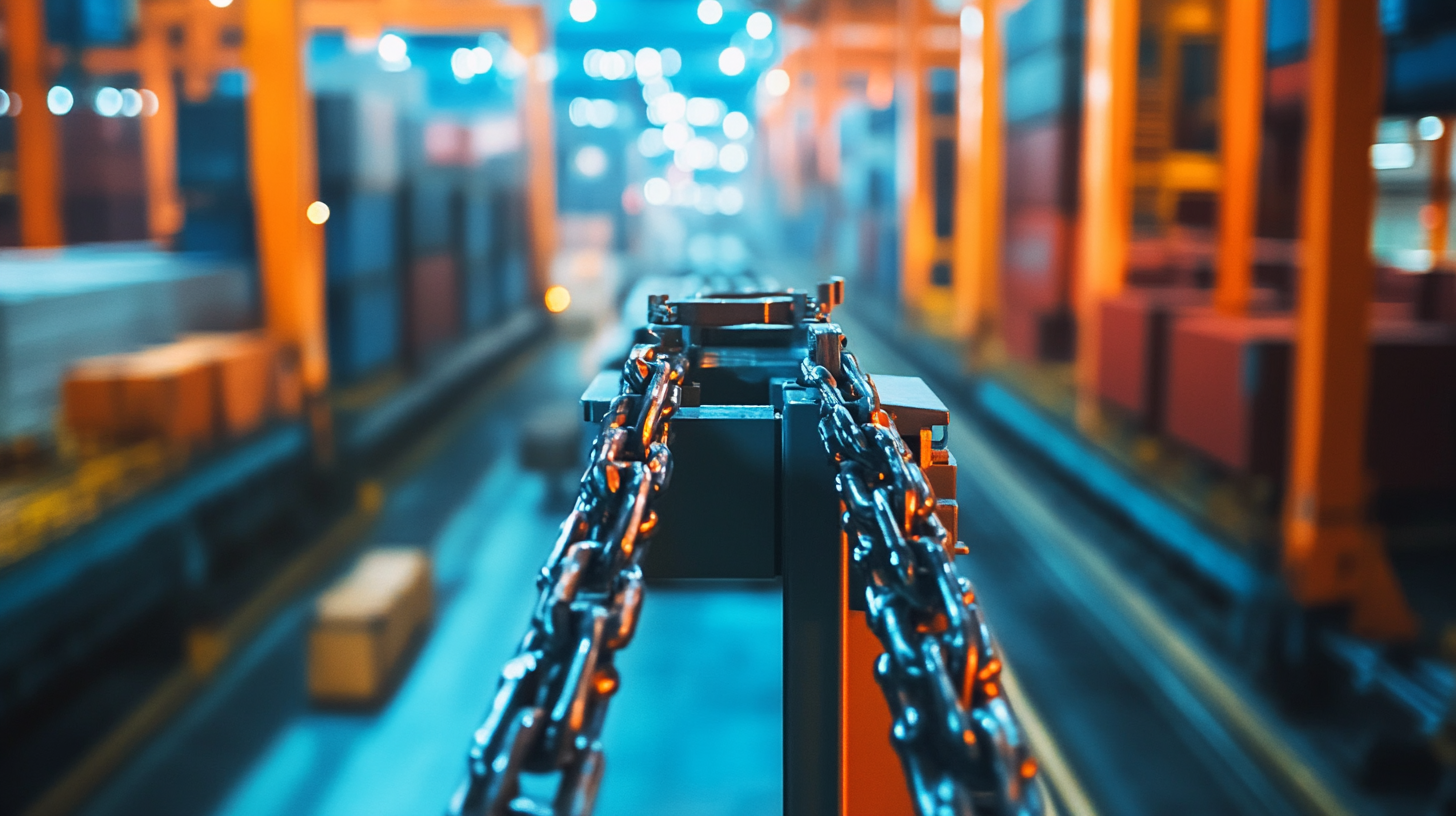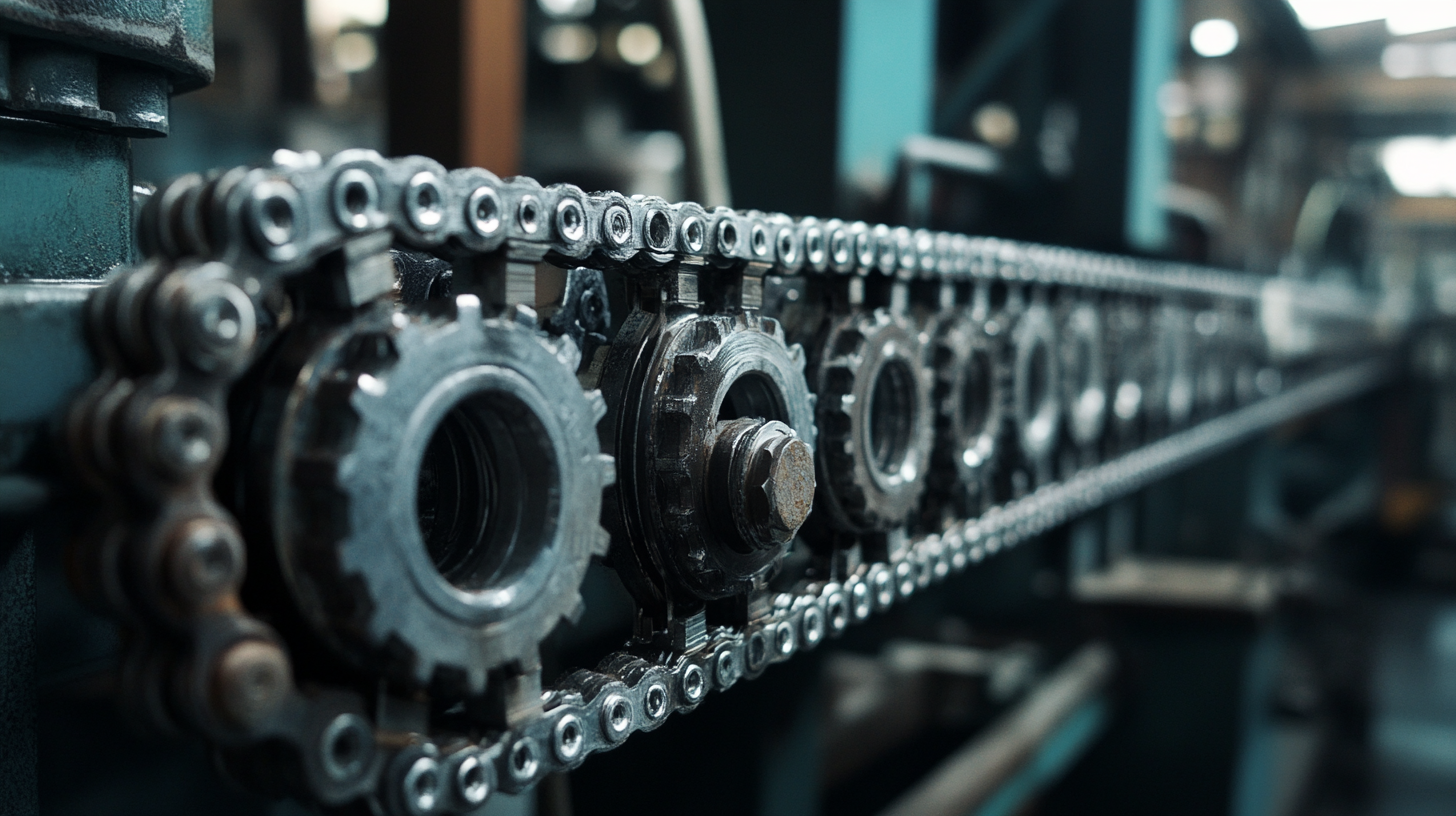In the ever-evolving landscape of international trade, the recent imposition of reciprocal tariffs between the United States and China has posed significant challenges and opportunities for manufacturers. Notably, despite these economic headwinds, China's manufacturing sector has shown remarkable resilience, particularly in specialized machinery like the Bismark Chain Coupling Machine. According to a recent report by the International Trade Administration, China's machinery exports reached approximately $73 billion in 2022, with certain subsectors, including coupling machines, witnessing substantial growth due to increased demand for high-performance applications in various industries. As businesses navigate the complexities of trade tariffs, selecting reliable and innovative solutions becomes critical. The Bismark Chain Coupling Machine, known for its durability and efficiency, stands out as a premier choice for companies looking to optimize their operations while adapting to the shifting trade environment.

As the Sino-US trade tensions escalate, the impact of new tariffs on manufacturing growth in China cannot be overlooked. Reports indicate that China's manufacturing activity is already shrinking as US tariffs take effect, leading to concerns over economic stability. The imposition of stiff tariffs by the Trump administration has cast a shadow over China's industrial sector, contributing to a slowdown in both exports and manufacturing investment. Economists have begun revising their growth forecasts for China, reflecting the challenges posed by these tariffs and the accompanying economic ripple effects.
Despite the adverse conditions, there are signs of resilience within China's manufacturing landscape. In April, industrial profit growth saw a modest increase, buoyed by Beijing's policy measures designed to cushion the blow of tariff impacts. Chinese factories have been grappling with a dual threat: the direct impacts of US tariffs on exports, and the second-order effects that heighten domestic consumer sentiment and manufacturing activity. With escalating trade tensions and the looming threat of further tariffs, Chinese manufacturers are navigating an increasingly complex landscape while seeking ways to maintain competitiveness in global markets.
| Machine Model | Manufacturer | Price (USD) | Tariff Rate (%) | Impact on Price (USD) |
|---|---|---|---|---|
| Bismark Coupling X1 | Bismark Solutions | 500 | 25 | 125 |
| Bismark Coupling Y2 | Bismark Industries | 750 | 25 | 187.5 |
| Bismark Coupling Z3 | Bismark Tech | 1000 | 25 | 250 |
The global market is increasingly recognizing the advantages of Chinese Bismark chain coupling machines, which have become a preferred choice for many industries. These machines are engineered with precision and are known for their robust performance and durability. The advanced manufacturing techniques employed in China ensure that these coupling machines meet international quality standards while remaining competitively priced. This combination of quality and cost-effectiveness positions Chinese Bismark chain coupling machines as a strong contender in global supply chains.
In addition to affordability and quality, another key advantage of these machines lies in their versatility. They are designed to accommodate a variety of applications, making them ideal for diverse sectors such as automotive, manufacturing, and mining. Furthermore, the availability of customization options allows businesses to tailor the machines to their specific needs, enhancing their operational efficiency. With their ability to deliver reliable performance under varying conditions, Chinese Bismark chain coupling machines are set to play a significant role in shaping the future of industrial operations worldwide.

When selecting the best Bismark chain coupling machine for your operations, it's crucial to consider various factors that align with your specific requirements. According to a recent report by MarketsandMarkets, the global coupling market is projected to reach $7.5 billion by 2025, highlighting the increasing importance of efficient power transmission across numerous industries. One must evaluate the machine's compatibility with your existing systems, durability, and maintenance needs to ensure optimal performance.
Here are a few tips to guide your selection process:
- **Assess Compatibility**: Before committing to a purchase, ensure that the Bismark chain coupling machine is compatible with your machinery. Conduct a thorough analysis of your current setup to avoid any operational disruptions.
- **Prioritize Durability**: Machines built from high-grade materials not only promise longevity but also reduce the risk of unexpected downtime. Look for industry certifications that assure quality and reliability.
- **Evaluate Maintenance Requirements**: Understanding the maintenance protocol for the coupling machine can save you time and costs in the long run. Opt for machines that come with detailed service guidelines and minimal upkeep schedules.
By focusing on these aspects, you can make a more informed decision that enhances productivity and efficiency in your operation.

Importing machinery from China has become increasingly complex due to the evolving landscape of trade tariffs. As tariffs fluctuate, businesses must navigate these challenges effectively to ensure profitability. According to a report by the International Trade Administration, the machinery sector in China reached an estimated export value of $245 billion in 2022, indicating robust global demand despite tariff hurdles. Choosing the right Bismark chain coupling machine is essential for maintaining operational efficiency, epitomizing how careful equipment selection can also mitigate costs associated with tariffs.
**Tips:** When sourcing machinery, consider long-term partnerships with Chinese manufacturers who have experience in exporting. This can lead to better negotiation outcomes regarding pricing and delivery, reducing the impact of tariffs. Furthermore, staying informed about updates in tariff regulations through resources like the U.S. Trade Representative (USTR) can provide strategic advantages in your procurement decisions.
Understanding the total landed cost is crucial. This includes not only the purchase price but also freight, insurance, customs duties, and any additional tariffs. A thorough cost analysis can help identify areas where savings can be realized, allowing companies to choose high-quality equipment such as the Bismark chain coupling machine while still adhering to budget constraints. By leveraging industry insights and market trends, importers can navigate the complexities of tariffs and make informed purchasing decisions.
This bar chart illustrates the impact of trade tariffs on various categories of machinery imported from China, particularly focusing on the Bismark Chain Coupling Machine. The data reflects the estimated tariff rates applied over the past few years.
As the global landscape of trade continues to evolve, China's manufacturing industry stands on the cusp of significant transformation. The recent wave of trade tariffs has prompted Chinese manufacturers to rethink their strategies, focusing not just on cost efficiency but also on innovation and quality. Companies are increasingly adopting advanced manufacturing technologies, such as automation and artificial intelligence, to enhance productivity and stay competitive in the international market. This shift signals a move from being the world's factory to becoming a hub for innovation.
In addition to technological advancements, China is also exploring new trade partnerships and avenues for collaboration. With the Belt and Road Initiative already reshaping trade dynamics, manufacturers are looking beyond traditional markets to new regions. This proactive approach allows companies to mitigate the impact of tariffs while expanding their global footprint. As the industry navigates these changes, selecting the right equipment, such as the leading Bismark chain coupling machine, becomes crucial in maintaining operational efficiency and meeting the demands of a rapidly changing market. The future of China's manufacturing is not merely about surviving tariffs but thriving through innovation and strategic partnerships.
